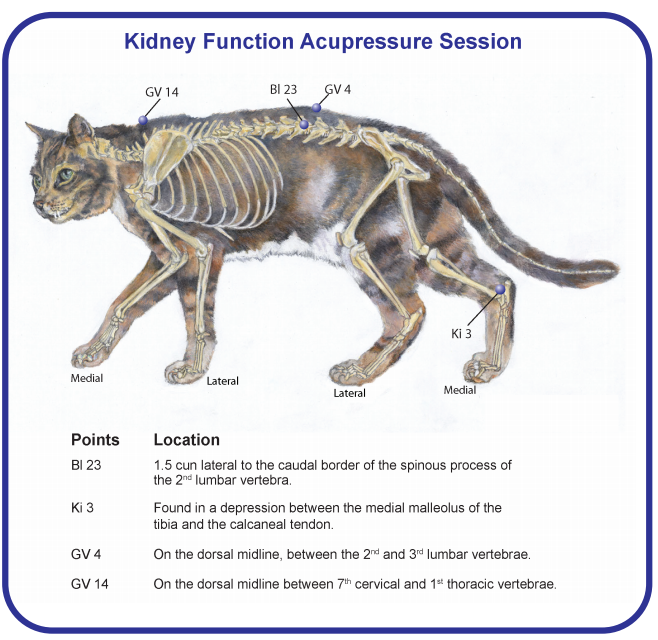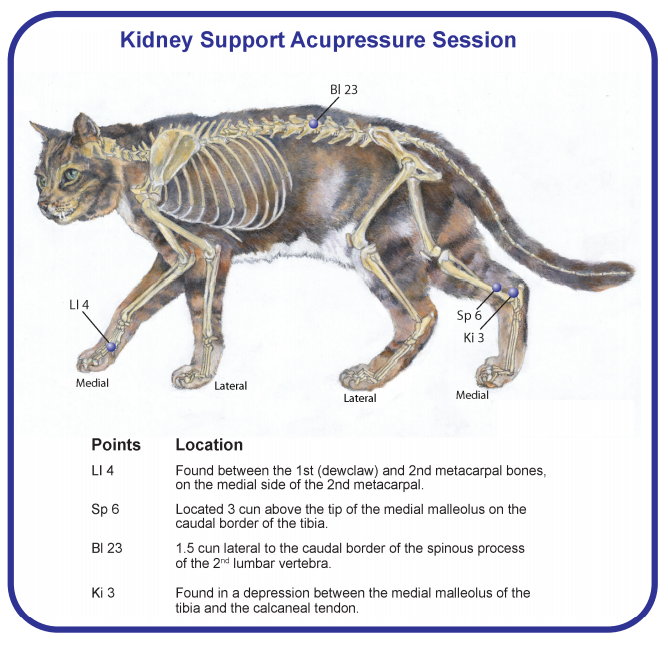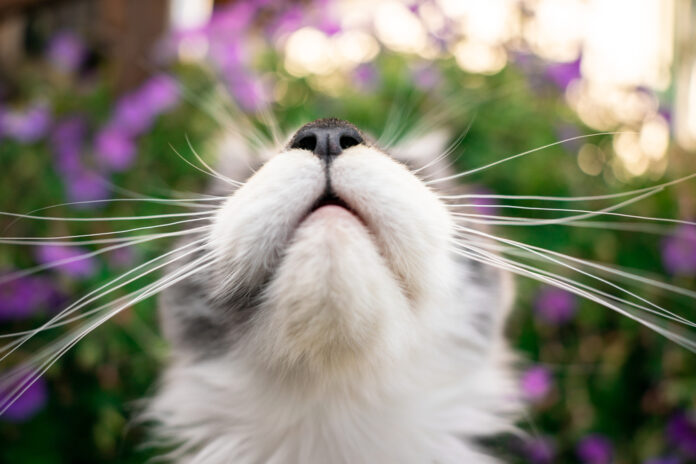Supporting your cat’s kidneys with acupressure
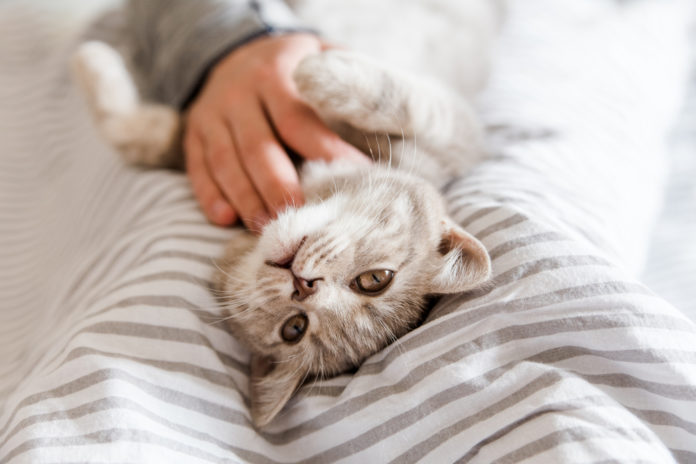
Regarded as “The Root of Life” in Chinese medicine, the kidneys are vital to your cat’s health and survival. These acupressure sessions can help support and vitalize her kidney function.
Kidney disorders are very common in cats, especially as they get older. Fortunately, you can take steps to not only help prevent these problems from developing, but to support and strengthen kidney function in a cat who is already showing signs of disease. While diet and lifestyle are important factors, acupressure can also play a role in prevention and management.
Feline kidney disorders
The difficulty with kidney disorders in cats is that they often present in ways that are similar to other disease, such as diabetes and aging issues. When kidney dysfunction becomes clinically recognizable and/or a blood test shows evidence of kidney dysfunction, you are then dealing with a condition that requires consistent management. Cats over the age of seven are increasingly more apt to develop renal disease. While there is no known cure for kidney insufficiency or failure, these disorders are no longer a death sentence for cats. Early detection and management are key to helping your cat live a long and comfortable life.
- From a Western medicine perspective, a cat experiencing kidney disease may exhibit the following signs: poor appetite, extreme thirst, weight loss, dehydration, vomiting, frequent or no urination, bad breath, poor quality coat, sore mouth or mouth ulcers, nausea, pain, high blood pressure, diarrhea or constipation, bloody or cloudy urine, and lethargy.
- Chinese medicine practitioners note that indicators of renal disease can also include shallow respiration (more exhalation than inhalation), wheezing, loose or loss of teeth, profuse clear urination, dull coat or sticky-looking fur, premature graying of the face, fragile bones, loss of hearing or other ear problems, and slow injury healing.
If your cat is exhibiting any of these indicators, consult your holistic or integrative veterinarian for a thorough checkup.
Managing your cat’s kidney disease – an integrative approach
Since your cat’s survival depends on the health of her kidneys, it’s best to use all the resources available to help her live as long and as happily as she can. If your cat has kidney dysfunction, follow your veterinarian’s recommendations and combine them with acupressure sessions to support her kidneys.
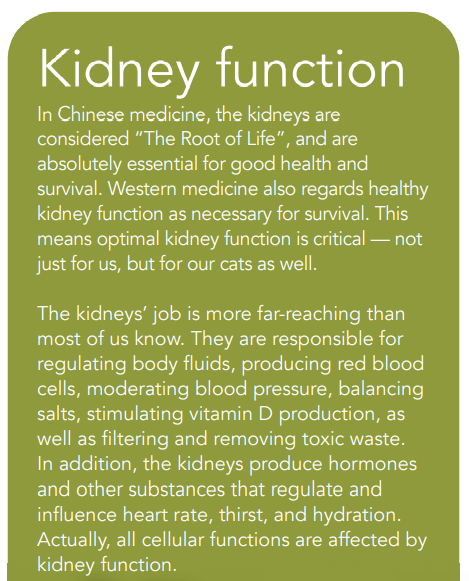
1. Western veterinary care
Your veterinarian will perform two blood tests: blood-urea-nitrogen (BUN) and creatinine. She is testing for the level of nitrogen waste products from proteins that may be present in the cat’s blood. Waste products are supposed to be flushed out of the cat’s body when she urinates, or they will result in a toxic buildup leading to renal insufficiency or failure. These blood tests can also show low potassium or high phosphorus levels indicating advanced kidney disease.
Once the results of the blood tests are available, your veterinarian will use the International Renal Interest Society (IRIS) staging standard to determine your cat’s stage of renal disease and the best course of treatment. In the case of acute renal failure (ARF), in which there’s rapid deterioration of kidney function, it is possible for the disease process to be slowed enough to be considered chronic renal failure (CRF).
During the early stages of CRF, your vet will most likely recommend a diet low in proteins and encourage ways to increase your cat’s water consumption. As CRF progresses over time, there are supplements and drugs that can help your cat continue with a good quality of life.
2. Chinese medicine care
In Chinese medicine, the goal is to avoid having your cat experience any kidney problems at all during her life. When she is young, you can help maintain the health of her kidneys by performing on-going acupressure sessions that support their function – refer to the Kidney Support Acupressure Session chart. Add a healthy, high quality diet and a toxin-free environment, plus a good balance of exercise, rest, mental stimulation, social interaction, and affection. These lifestyle enhancements will increase the possibility of your cat not falling prey to kidney disease.
If your cat already has a kidney disorder, specific acupressure points are known to increase the vitality of kidney function. By offering your cat the Kidney Function Acupressure Session twice a week (see chart) while working with your veterinarian, you will be giving your cat the gift of life.
